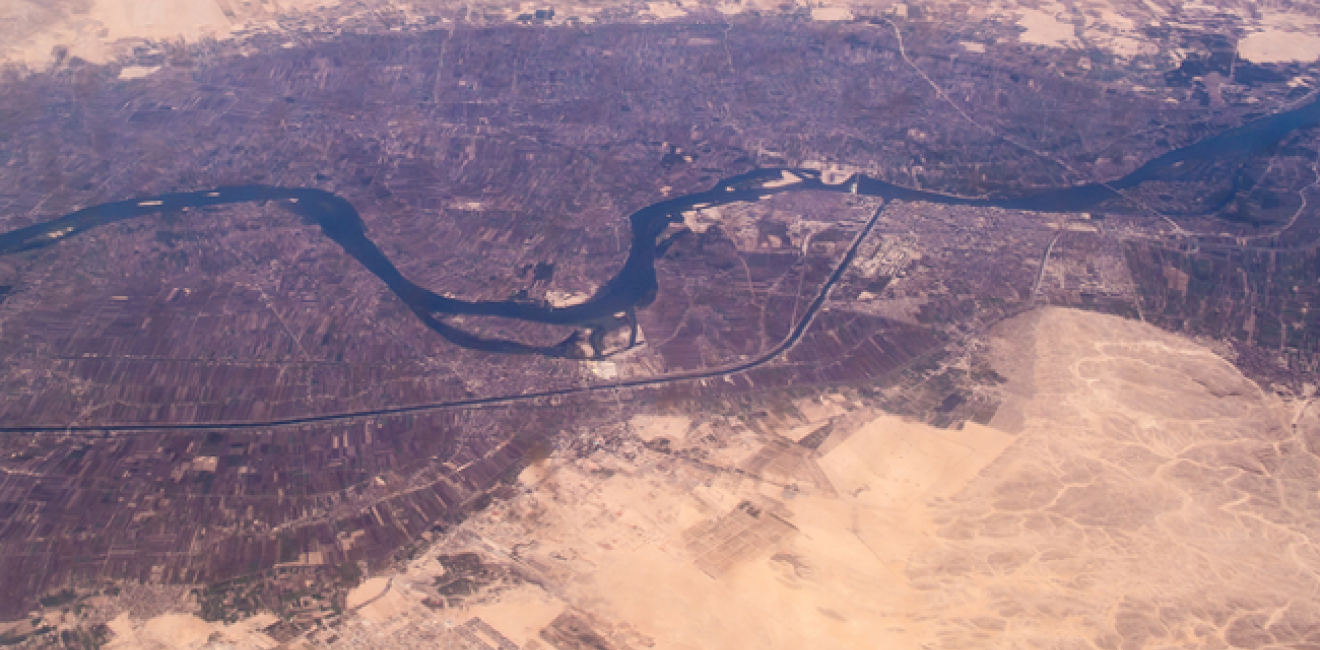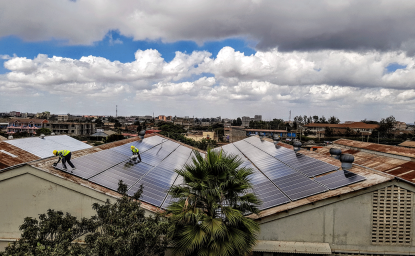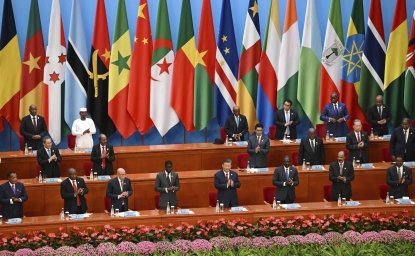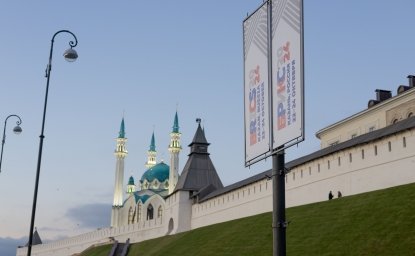
A blog of the Africa Program
Women on the outskirts of Addis Ababa on average walk 15 to 20 kilometers daily to collect firewood. Collecting firewood and fetching water from rivers or ponds is a daily reality for the vast majority of rural Ethiopian women. The journey is not easy; they encounter unbearable challenges including forest guards who chase them away from wooded areas, backbreaking bundles of wood carried great distances, and even sexual assaults, yet they must return home to sell this firewood and still prepare food for their family. The health consequences of using firewood for cooking are enormous, and continuous reliance on firewood also leads to deforestation and other ecological problems. The Grand Ethiopia Renaissance Dam (GERD) was inaugurated to address the growing socio-economic needs of the country, including saving Ethiopian women from the vicious cycle of the firewood-collecting burden.
The Ethiopian rationale for building the GERD raised concern for Egypt — given the potential effects of the huge dam on the farmers and water security of 90 percent of Egyptians who rely entirely on Nile waters. Sudan, on the other hand, which has been flooded by the Blue Nile, initially welcomed the dam's construction. The regional dispute among Ethiopia, Egypt and Sudan over the GERD arises from such contradictory and overlapping national interests (i.e., utilizing the Nile waters for developmental purposes, maintaining the flow of the Nile, and preventing annual flooding). However, the overarching Nile waters conflict is rooted in the legacies of colonial treaties and the absence of comprehensive water-sharing legal frameworks.
Previous efforts to forge cooperative institutional frameworks, which began in the 1960s, bore fruit only in 1999 with the establishment of the Nile Basin Initiative (NBI). However, no legally binding water-sharing agreement has been reached thus far, with Egypt and Sudan rejecting proposed treaties out of concern they will lose their "current uses and rights" to Nile water. And in the meantime, losing patience, Ethiopia embarked on constructing the GERD on the Abay River (Blue Nile) in 2011 exacerbating the already strained relationship with Egypt. Excepting the 2015 Declaration of Principles signed by the three countries, negotiations over the GERD appear to have stalled or reached an impasse.
Based on the most recent facilitations and dialogue regarding the dam, the fact that each of the three nations defines their interest in the right to the Nile waters as a critical national security issue makes it difficult for them to compromise. The United States and World Bank brokered negotiation focused on three sticking points: a schedule-based filling of the dam; drought mitigation mechanisms during filling; and overall dam operation. After a year-long discussion, Ethiopia refused to sign a draft plan, alleging that it favored Egypt and Sudan. Prime Minister Abiy Ahmed had been criticized for upholding a diplomatic approach that diverged from his predecessor's strategy of aligning with a coalition of African states that share the Nile's water. Ethiopia's rejection of the proposed deal was not without repercussion; the U.S. imposed restrictions on some foreign assistance, further complicating the dam crisis and sparking an "it is my dam" movement in Ethiopia and the diaspora. Following the failed attempt of the GERD negotiation in Washington, the parties agreed to resume talks under the auspices of the African Union (AU).
Negotiation is not easy, particularly on matters of such outstanding national interest. It takes years to reach a mutually beneficial solution. The GERD talks are not different. However, with the 85 percent completion of the dam construction and the third filling of the dam coming in a few months during the Ethiopia rainy season, the festering crisis should be prevented from escalation. Indeed, the diplomatic positions and compromises of the riparian states trickle down and tremendously affect rural Ethiopian women, farmers, and many more. It is ultimately these groups of people along the Nile who dream of the dam's completion in hopes that it will not only relieve their stress but offer new ways of life.
Yared Debebe Yetena is a Ph.D. candidate in Peace and Security Studies at Addis Ababa University, Ethiopia. Since 2012, he has been a lecturer and researcher in Peace and Security Studies at the University of Gondar. He is also a DAAD alumnus and a 2021 Civil Society Scholars Award fellow. His wider research interests include nationalism, social movement, peacebuilding, and post-conflict reconstruction. He was a Southern Voices Network for Peacebuilding (SVNP) Scholar and an Africa Program Scholar during Spring 2022.
Photo Source: Aerial view of the Nile River Valley by Alexdjvu/Shutterstock
Author
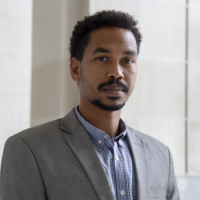
Ph.D. Candidate in Peace and Security Studies, Institute for Peace and Security Studies, Addis Ababa University, Ethiopia

Africa Program
The Africa Program works to address the most critical issues facing Africa and US-Africa relations, build mutually beneficial US-Africa relations, and enhance knowledge and understanding about Africa in the United States. The Program achieves its mission through in-depth research and analyses, public discussion, working groups, and briefings that bring together policymakers, practitioners, and subject matter experts to analyze and offer practical options for tackling key challenges in Africa and in US-Africa relations. Read more

